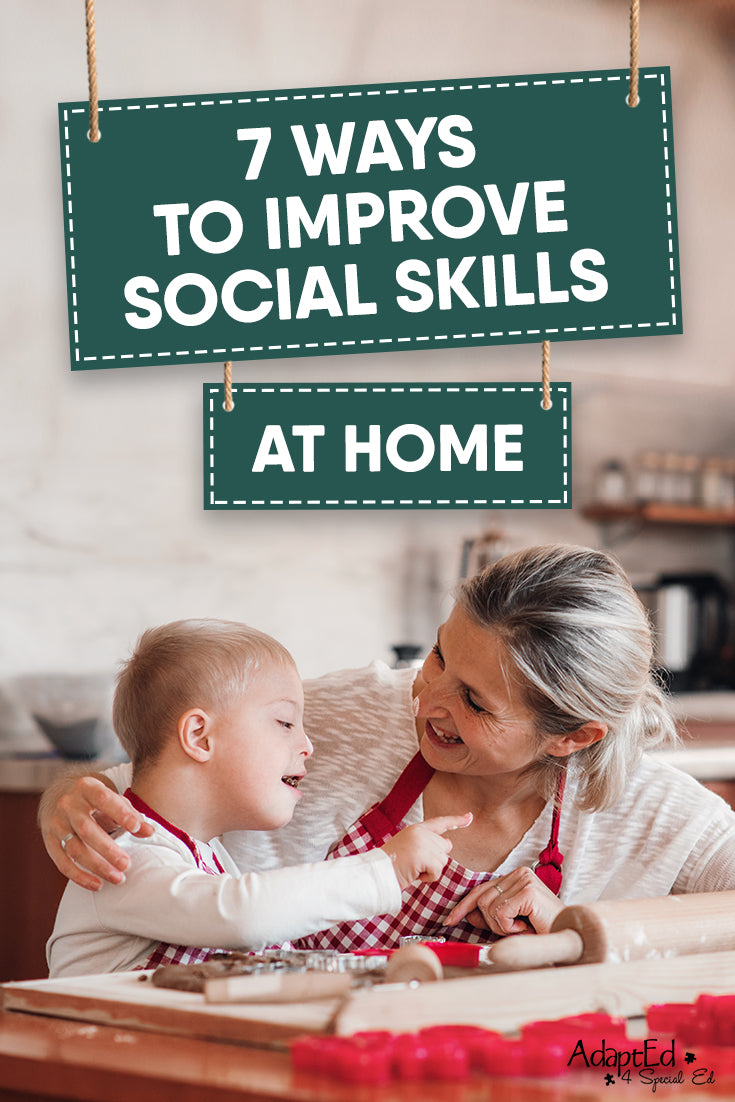It's a catch-22.
Developing good social skills is vital, but how do you teach your kids to socialize when you can't leave your house?
It seems like an impossible situation. Don't worry though, we've got some clever tricks up our sleeve to help you improve social skills from the comfort of your own home.
Be careful though, you might just find yourself living with a real-life Chatty Cathy!
1. Encourage Family Time
Children first learn to communicate by listening to their parents and siblings. During isolation, these interactions will be the main source of social stimulation for your child.
Set aside some quality time every day where the whole family sits together and talks. Arrange a picnic in the garden, or play board games. Board games are a great way to build social skills, as they often involve teamwork.
By spending this valuable time with your children, you not only keep loneliness at bay, but you can also observe and identify weaknesses in their social skills.
2. Set up Virtual Play Dates
It's important for your children not to lose contact with their friends. When they return to school, you don’t want them to feel like they have to start making new friends all over again.
Children also behave differently around their friends than they do around their family. They feel comfortable around family and might be more expressive and talkative.
When talking to friends, your child may have to combat shyness or social anxiety. It is important for children to practice overcoming these feelings.
Help your kids maintain communication with their friends by organizing virtual playdates. Older children will probably be able to set up online playdates by themselves. You might have to get in touch with other parents to arrange play dates for younger children.
If your child is anxious about what to say or do during the playdate, suggest some games for them to play. Mad Libs and Charades are always great fun.
Apps like Caribu and Houseparty allow you to play online games, like Memory, tile puzzles, and trivia contests, on video calls.
3. Get a Pet
You would be surprised at just how many skills a child can learn from a pet! Pets offer companionship, exercise, and they teach responsibility.
Empathy, affection, and caring for the needs of others are the cornerstones of good social skills.
Animals help children to communicate verbally and non-verbally. Pets offer a great opportunity to teach your kids about the significance of body language.
A pet is a commitment that will last far longer than this period of isolation, but they are also a gift that will keep on giving.
4. Improve Your Own Social Skills
For shy or introverted people, isolation can be blissful. We must not forget, however, that our children look to us for social cues.
More often than not, when our children are unsure of what to do, they mimic our behavior. If we, as parents, are shy and introverted, our children will most likely become reluctant to socialize too.
While it is wise to teach your child the importance of social distancing, be careful not to accidentally teach them to be afraid of other people. This is where you need to lead by example.
Greet your postman, wave at joggers, and chat to your neighbors over the garden wall. Make a point of introducing your child to these people and including them in your conversation. A friendly greeting is the first step to successful socialization.
Make daily phone calls to friends or relatives, encouraging your child to have a short conversation with each person you call. Not only will this help you maintain strong relationships with friends and family, but it allows your child to see that socialization is an important part of your day.
5. Play Make-Believe
Playing make-believe with your children offers you the opportunity to practice holding conversations.
Taking on the roles of different characters will teach your child how to socialize with different types of people. These fantasy situations will help your child practice skills that can be used in the real world.
If your child is pretending to be a store owner, they might interact with a disgruntled customer. If they are pretending to be a doctor, they will have to care for a patient who is in pain.
Role-playing will help your child to understand empathy and how to set the correct tone for a conversation. Role-playing is a great way to teach social skills to a child with special needs.
This is also helpful in identifying weaknesses in your child’s social skills. If the conversation is stunted, encourage your child to ask questions and learn more about the person/character they are speaking to.
This also teaches children about the give and take of conversations. They learn to actively listen to people’s answers and take social cues from their replies.
6. Enroll Your Child in Online Classes
When your children are first developing their social skills, it is a lot easier for them to interact with other children who share similar interests.
Joining a sports club or drama class used to be the perfect solution. However, because of the need for social distancing, online classes will have to make do instead.
These virtual lessons are a great way for your kids to meet new children and teachers from the safety of your home.
Ask your children what their interests are. Art classes, learning to play a musical instrument, or dance lessons, there are so many options! Sign up today!
7. Know Your Child’s Limits
Building social skills is important, but don’t become too disheartened if your child doesn’t seem interested in socializing with other people.
Not all children are social butterflies. Some children are more outgoing and social than others.
By placing too much pressure on your child, you may make them feel ashamed of being introverted.
As long as your child can comfortably interact with others when required, you have succeeded in teaching them adequate social skills.
If your child does not communicate well, and you are worried about their speaking abilities, consider having a speech evaluation done. This may be the first step in helping your child thrive.
Improve Social Skills From the Comfort of Your Home
Just because you are in isolation does not mean that your child needs to feel isolated.
These great tips give you the tools to improve social skills while maintaining social distance.
Visit our webpage for more information and advice to help your child on the way to success!



